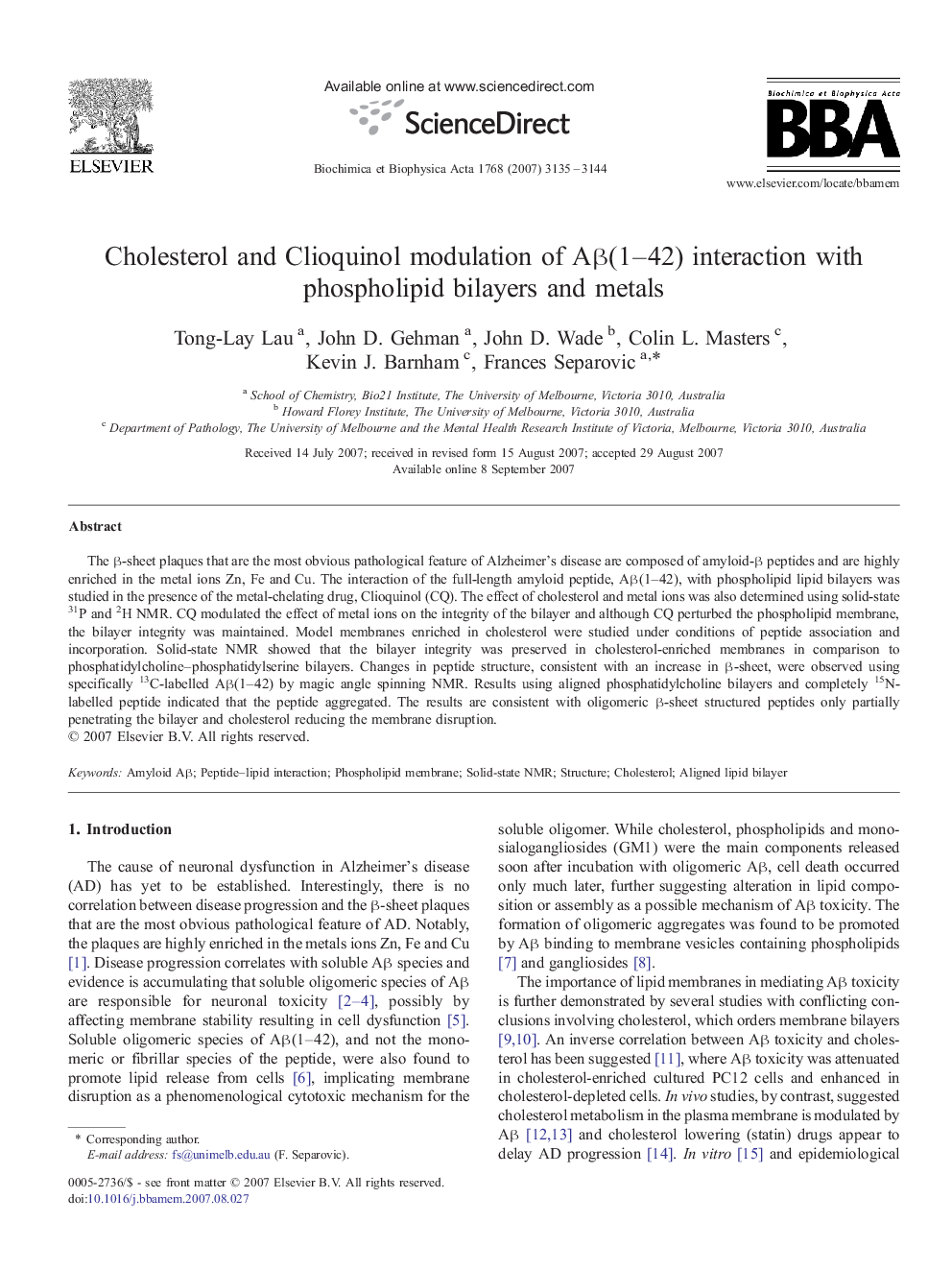| Article ID | Journal | Published Year | Pages | File Type |
|---|---|---|---|---|
| 1945339 | Biochimica et Biophysica Acta (BBA) - Biomembranes | 2007 | 10 Pages |
The β-sheet plaques that are the most obvious pathological feature of Alzheimer's disease are composed of amyloid-β peptides and are highly enriched in the metal ions Zn, Fe and Cu. The interaction of the full-length amyloid peptide, Aβ(1–42), with phospholipid lipid bilayers was studied in the presence of the metal-chelating drug, Clioquinol (CQ). The effect of cholesterol and metal ions was also determined using solid-state 31P and 2H NMR. CQ modulated the effect of metal ions on the integrity of the bilayer and although CQ perturbed the phospholipid membrane, the bilayer integrity was maintained. Model membranes enriched in cholesterol were studied under conditions of peptide association and incorporation. Solid-state NMR showed that the bilayer integrity was preserved in cholesterol-enriched membranes in comparison to phosphatidylcholine–phosphatidylserine bilayers. Changes in peptide structure, consistent with an increase in β-sheet, were observed using specifically 13C-labelled Aβ(1–42) by magic angle spinning NMR. Results using aligned phosphatidylcholine bilayers and completely 15N-labelled peptide indicated that the peptide aggregated. The results are consistent with oligomeric β-sheet structured peptides only partially penetrating the bilayer and cholesterol reducing the membrane disruption.
